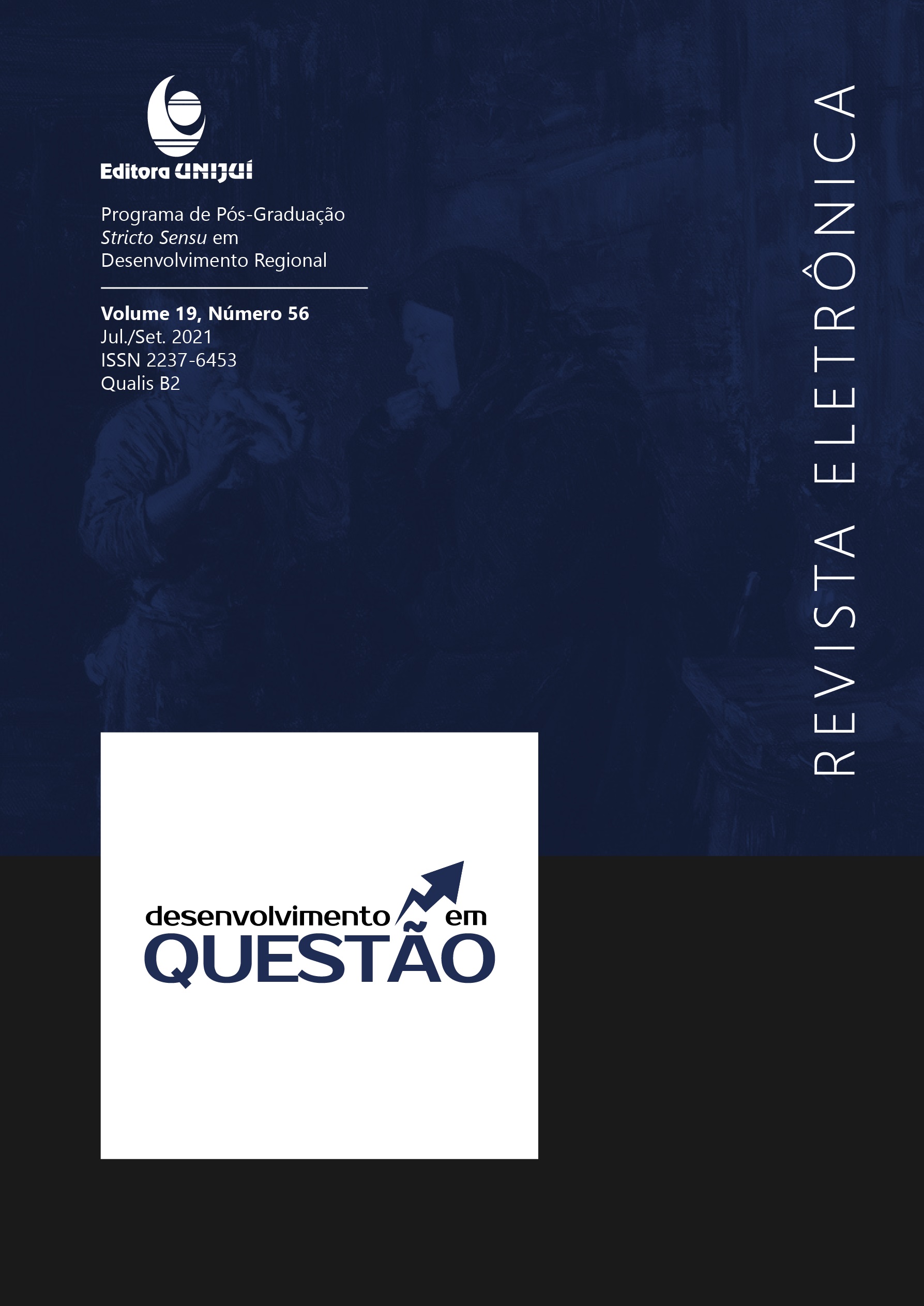Modelo de Gestão Ambiental para Universidades Comunitárias
MODEL FOR IMPLEMENTING AN ENVIRONMENTAL MANAGEMENT SYSTEM IN UNIVERSITIES
DOI:
https://doi.org/10.21527/2237-6453.2021.56.10699Palavras-chave:
Instituições de Ensino Superior. Sistema de Gestão ambiental. Desenvolvimento sustentável.Resumo
A preocupação com questões ambientais e com o desenvolvimento sustentável está cada vez mais presente as Instituições de Ensino Superior (IES). Prova disso é a busca por uma formação de estudantes e colaboradores direcionada – especificamente – para essa problemática e o desenvolvimento de práticas sustentáveis de modo a servir de exemplo para a sociedade. Assim, este trabalho tem por objetivo apresentar um modelo de gestão de uma universidade da região das missões do Rio Grande do Sul. Para tanto, aborda conceitos de gestão destacando a importância do desenvolvimento de um Sistema de Gestão Ambiental (SGA) em IES para que as mesmas possam colocar em prática aquilo que ensinam e fazer de sua gestão interna um modelo de sustentabilidade para a comunidade e – principalmente – para os universitários. A metodologia utilizada foi a pesquisa-ação; um dos princípios fundamentais é a realização da pesquisa em ambientes onde acontecem as próprias práticas. Dessa forma, as práticas que contemplam esse trabalho foram efetuadas em conjunto com uma equipe envolvida com as questões ambientais da Universidade. O trabalho se caracteriza também por um estudo de caso. Utilizou-se a ferramenta PMBOK como base para construção de fluxo do processo. Destaca-se a importância de um SGA nas IES como forma de sensibilizar estudantes, professores e técnicos para o desenvolvimento sustentável.
Downloads
Publicado
Como Citar
Edição
Seção
Licença
Ao publicar na Revista Desenvolvimento em Questão, os autores concordam com os seguintes termos:
Os trabalhos seguem a licença Creative Commons Atribuição 4.0 Internacional (CC BY 4.0), que permite:
Compartilhar — copiar e redistribuir o material em qualquer meio ou formato;
Adaptar — remixar, transformar e criar a partir do material para qualquer fim, inclusive comercial.
Essas permissões são irrevogáveis, desde que respeitados os seguintes termos:
Atribuição — Atribuição — os autores devem ser devidamente creditados, com link para a licença e indicação de eventuais alterações realizadas.
Sem restrições adicionais — não podem ser aplicadas condições legais ou tecnológicas que restrinjam o uso permitido pela licença.
Avisos:
A licença não se aplica a elementos em domínio público ou cobertos por exceções legais.
A licença não garante todos os direitos necessários para usos específicos (ex.: direitos de imagem, privacidade ou morais).
A revista não se responsabiliza pelas opiniões expressas nos artigos, que são de exclusiva responsabilidade dos autores. O Editor, com o apoio do Comitê Editorial, reserva-se o direito de sugerir ou solicitar modificações quando necessário.
Somente serão aceitos artigos científicos originais, com resultados de pesquisas de interesse que não tenham sido publicados nem submetidos simultaneamente a outro periódico com o mesmo objetivo.
A menção a marcas comerciais ou produtos específicos destina-se apenas à identificação, sem qualquer vínculo promocional por parte dos autores ou da revista.
Contrato de Licença (para artigos publicados a partir de 2025): Os autores mantêm os direitos autorais sobre seu artigo, e concedem a Revista Desenvolvimento em Questão o direito de primeira publicação.











